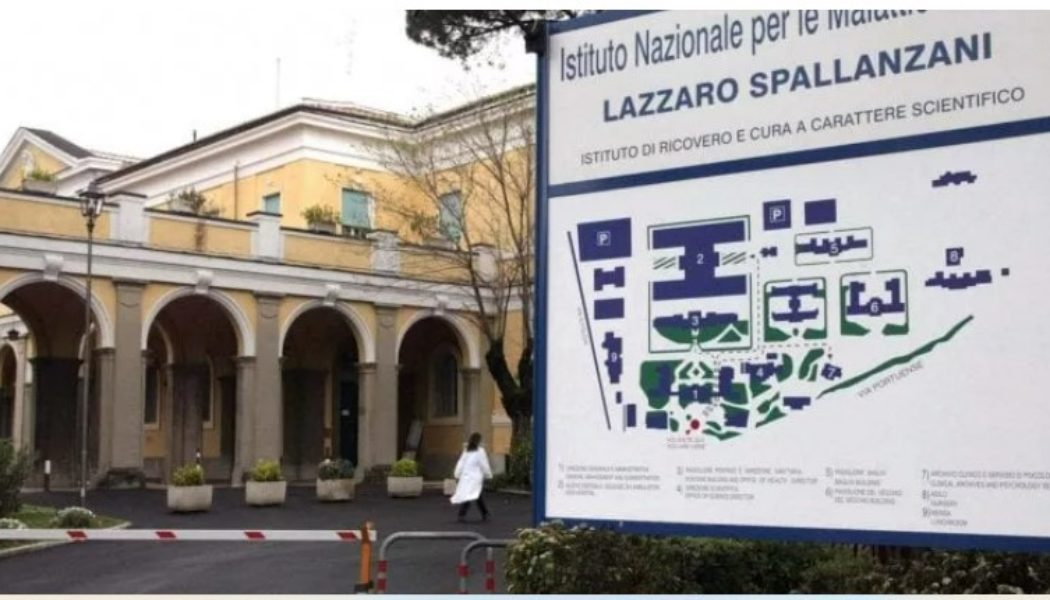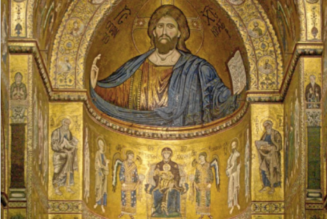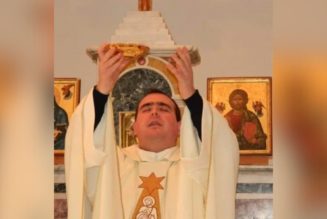
ROME – Readers may have noticed that I’ve been absent from the Crux site for more than three weeks. The reason, which I didn’t announce in advance, is that I recently had to have a fairly major surgery on my esophagus, and then I spent more than three weeks in the hospital here in Rome recovering.
Although I’m home now, my recovery is not complete. I have to spend the next couple of weeks on a largely liquid diet, performing physical therapy exercises and going through a series of follow-up appointments, all calculated to make sure I get back to something resembling normal. I was lucky to be in excellent hands – my surgeon, Dr. Giuseppe Maria Ettorre, is considered among the best in the country, and recently performed an abdominal surgery on former Italian President Giorgio Napolitano.
I went into the hospital on Oct. 17 and came out on November 11, meaning I spent 25 days there. Most of that time I had two large drainage tubes coming out of my side and a large IV pumping me with nutrients, since I wasn’t able to eat or drink on my own. I also couldn’t really have any visitors other than my wife, who was able to come three times a week for an hour at a time, because of tight restrictions on outsiders related to infection risks.
That lengthy period inside the system, most of it spent alone, left me with some basic take-aways about the practice of health care. I offer them here since the Catholic Church is the world’s largest private provider of health care, and perhaps these thoughts may be of some use to practitioners.
First, the experience taught me the importance of maintaining the Catholic identity of church-affiliated or sponsored health care facilities.
I was in the Lazzaro Spallanzani Hospital, which is Italy’s national institute for infectious diseases and also one of its main transplant centers. Spallanzani was an 18th century priest and biologist – ironically, he’s considered the father of artificial insemination – but by now the facility is public, though, like pretty much everything in Italy, “public” here still means culturally Catholic.
In my ward, there’s a small statue of the Madonna at one end of the main corridor, and at the other was a stairwell that looked out over a church dedicated to St. Camillus de Lellis, a 16th and 17th century Italian priest and founder of the Camillians, a religious order devoted to care of the sick.
I’m not a particularly spiritually intense person – I’m not the kind of guy to pray novenas, or to dream of making the Cammino di Santiago. Even so, I spent considerable time praying to the Madonna and to St. Camillus over the last 25 days, and the presence of those tangible reminders of the faith brought me deep comfort.
Second, it’s important to bring the Catholic tradition to bear by remembering that the ultimate aim isn’t to treat a condition, but a person.
Perhaps the most agonizing aspect of my experience was the lack of communication from decision-makers. No one ever volunteered information about where I was in my recovery, or what the next steps might be, or how my progress was being evaluated towards an eventual dismissal. To the extent I ever knew any of those things, it was because I asked repeatedly, and generally got answers only grudgingly.
In the absence of such information, your mind tends to go to dark places, and the anxiety bred by such a vacuum can become all-consuming.
What may be hard for health care personnel to grasp is that uncertainty is every bit as painful for a recovering patient as whatever physical ailment is at issue. Lying for hours in one’s bed wondering whether some new problem has been discovered, what’s being evaluated to gauge your progress, and what the timeline might be for dismissal, is a source of constant and profound stress, and, in the end, it can impede recovery as much as infection.
To quote the movie “The Shawshank Redemption” – an apt reference, given that a lengthy hospital stay bears an uncanny resemblance to a prison term – “Alone in the dark with nothing but your thoughts, time can draw out like a blade.”
Health care providers would do well to remember they’re treating people, not just maladies, and those people crave information as much as they do oxygen or blood or antibiotics.
Third, health care systems would do well to treat the people at the bottom of their hierarchies with great respect, because they’re often the only people who can relate with patients on a truly human basis.
Doctors and nurses are often delightful personalities, of course, and when you get to know them outside of a hospital ward it’s a different experience. On the inside, however, they generally try to maintain a degree of clinical distance from patients, and often interact solely in the context of treatment and monitoring.
The people who sweep the floors, however, or empty the garbage, or bring around the meals, don’t have the same attitude. They’re free to relate with patients as human beings, not as objects of professional responsibility.
For instance, during my stay at Spallanzani I befriended an orderly named Francesco, who works on my ward and with whom I would spend long stretches of time talking about our families, our homes, our experiences of Rome, soccer (inevitably) and any number of other topics. While I know I owe my physical recovery primarily to my doctors and nurses, my psychological survival over those 25 days was due in no small measure to Francesco and others like him.
Let me be clear that these are thoughts intended to help health care providers grasp what the experience of a lengthy hospitalization is like from the patient’s perspective. Despite whatever frustrations I felt, I’m deeply grateful for the outstanding care I received, and I know that my capacity even to pen these lines is because of it.
So, thank you to everyone involved – and here’s to a health care system that’s every more relational, truly human and, therefore, all the more Catholic.
Join Our Telegram Group : Salvation & Prosperity







